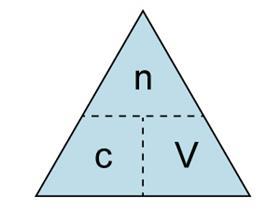We take a look a back on the year. Which articles really got us thinking?
We love a good blogpost. The team here at EiC have looked back over 2015 and we've chosen our favourite articles of the year.
![Shutterstock 123775009 300tb 0[1]](https://d1ymz67w5raq8g.cloudfront.net/Pictures/480xAny/6/0/9/113609_shutterstock_123775009_300tb_01.jpg)
Student blogs
Michael Seery, blogger and editorial board member
I loved this blogpost and the idea of encouraging students to blog. A lot of the work we get students to do is for the teacher's eyes only. Encouraging blogging and opening up the work to a much wider audience enabled students to showcase their talents and interests well beyond curricular demands. These kinds of activities show that students can excel when their activities and assessment allow for creativity and varying forms of expression.

What does research say about flipped teaching?
Kristy Turner, blogger and editorial board member
I have been an enthusiast for flipped learning for some time now. It's one of those things lots of people fancy having a go at but don't make a start on for many different reasons. Michael's blog is a great update on what's happening in the world of flipped learning, jogging the memory of those who always mean to get round to trying it out. The information about the potential impact on student results is especially interesting.

Reading lessons for scientists
Karen J Ogilvie, editor
Ben had a star student that struggled in exams as she wouldn't read science texts or exam questions. No one had ever taught her how to. Ben raised an issue that many of us are blind to – he assumed reading science was like reading English, but to some it's more like a foreign language. Ben surveyed scientists to learn about their reading habits. He has since developed lesson plans to help students learn how to read science texts.

Good enough
Paul MacLellan, deputy editor
This year I've regularly found myself grappling with a familiar problem: where does the theory of teaching meet practice? When does ideology give way to pragmatism? I was discussing this with my colleague Duncan when he introduced me to the concept of 'good enough' (or empirical adequacy, if you prefer). I think I startled him by immediately asking him to write about it, but he crafted an article that every teacher could learn from.

Why are formula triangles bad?
David Sait, assistant editor
I hadn't come across formula triangles until Jenny tweeted her dislike of them. I asked her to write a blogpost to explain what they are, why they're bad and how teachers can help students learn to rearrange equations. In response to the article, we received a huge number of comments, both from teachers who hate formula triangles, but also from those who love how they can be a useful tool for less mathematically-confident students.
Images © Ginta Gasjune and Shutterstock









No comments yet